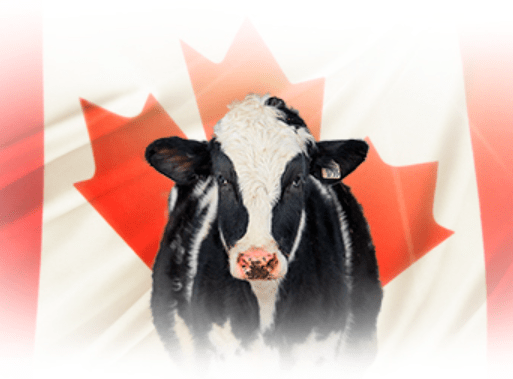The government of Canada offered clarifications related to its support for milk production under the USMCA, CPTPP and CETA, all of them trade agreements with North America, the Asia-Pacific region and the European Union, respectively.
On a general level, the Government of Canada is committed to completing work related to full and fair compensation for recent trade agreements, including the United States–Mexico-Canada Agreement (USMCA).
In August 2019, the Government of Canada announced that it will make available $ 1.75 billion over eight years to Canadian dairy farmers in connection with the Comprehensive Economic and Trade Agreement (CETA) and the Comprehensive and Progressive Trans-Pacific Partnership Agreement (CPTPP).
Of this amount, $ 345 million was allocated to the first year (i.e. 2019-2020), in the form of direct payments.
During the first year, which ended March 31, 2020, a total of more than $ 338 million was made in direct payments to eligible dairy producers through the Dairy Direct Payment Program.
USMCA
The intention is to continue working with dairy farmers so that the remaining $ 1.405 million is available in the coming years.
Details on future years of funding are still being determined, including funding to offset USMCA impacts.
All of the above was a response from the Canadian government to a consultation by the United States within the framework of the World Trade Organization (WTO).
As a preamble, the United States indicated that Canada is committed to completing work related to full and fair compensation for recent trade agreements, including the USMCA.
He then added that Canadian media have published articles making claims about the monetary value of compensation that would be appropriate for dairy farmers.
In the end, the United States asked this question: Does the government of Canada have a target value for planned full and fair compensation?
Furthermore, apart from this clarification, the European Union highlighted its interest in understanding the prices of different kinds of milk in Canada.
New Zealand supported the question and would review the data and report on milk classes to be released next year.
New Zealand had a continuing interest in the implementation and subsequent elimination of milk classes 6 and 7, including prices, use and sales of the respective milk classes.
While New Zealand welcomed the removal of milk class 6 under the agreement between Canada and the United States, it was disappointed to learn that Canada had reclassified class 7 as class 4 (a) and was therefore not convinced that the trade-distorting effects of Canadian specialty milk programs were resolved.
![]()

